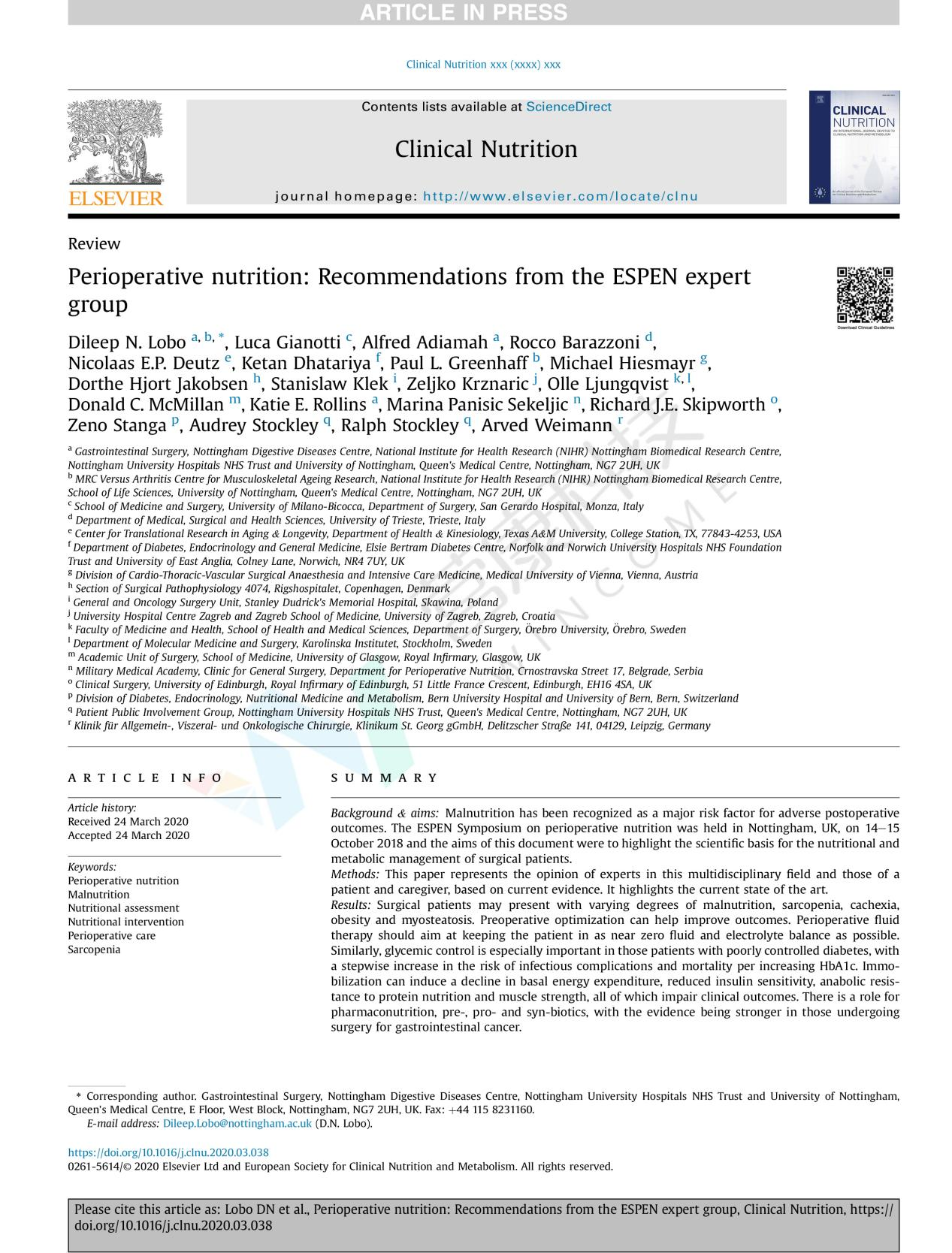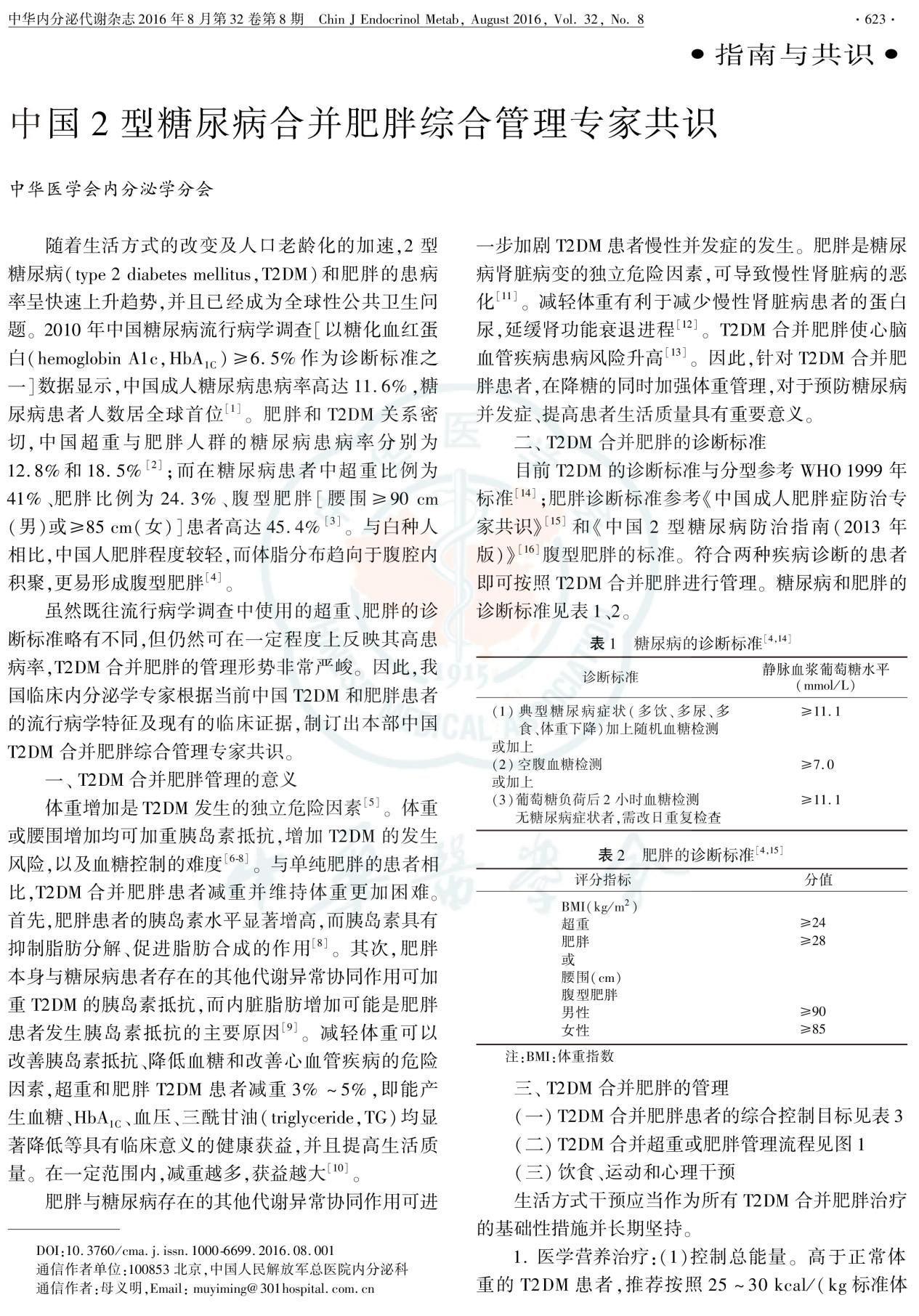Challenges of clinical hyperglycemia and nutritional needs
As the prevalence of diabetes continues to increase, comorbid hyperglycemia is more common in hospitalized patients, with approximately 50% of diabetic patients undergoing at least one surgery in their lifetime and at least 10% to 20% of surgical patients having comorbid diabetes. Under the influence of trauma and surgery, stress hyperglycemia is a common clinical complication in the perioperative period. The risk of hyperglycemia is significantly associated with the risk of infection, leading to prolonged hospitalization and increased morbidity and mortality. Therefore, attention needs to be paid to the proper nutritional support of hyperglycemic patients.




Nutritional support for hyperglycemic patients
In 2020, ESPEN put forward recommendations and guidance on perioperative glycemic control in "Perioperative Nutrition: ESPEN Expert Group Recommendations". Combined with the "Guidelines for the Prevention and Treatment of Type 2 Diabetes in China" put forward by the Diabetes Branch of the Chinese Medical Association in the same year, the following nutritional recommendations are available for patients with diagnosed diabetes and for patients with diagnosed diabetes who develop hyperglycemia during the perioperative or postoperative period.
Timely monitoring and care
Use low glycemic index GI sources of nutrition
Intake of dietary fiber
Pay attention to perioperative hyperglycemia
Pay attention to the symptoms of hyperglycemia in combination with other diseases.
Advantages of hyperglycemia specific disease formula
Rationally proportioned nutritional formula can ensure the provision of adequate nutrition while reducing blood glucose fluctuations and improving the body's blood glucose metabolic status to reduce complications caused by hyperglycemia and severe blood glucose fluctuations. Hyperglycemia-specific disease formulas can provide
Rich in protein and lipids
In the stressful hyperglycemic state of the perioperative period, the gastrointestinal tract is prone to ulcers and other damage, and the immunity of the gastrointestinal mucosal barrier is reduced. Rich and rapidly absorbable proteins can quickly repair damage to the gastrointestinal tract, and together with a large amount of lipids, they can replace some sugar substances for the the body's function and reduce the risk of blood sugar fluctuations.
The role of slow-release starch, fructose and other sugar substances
The large molecular structure of slow-release starch can slow down the rate of hydrolysis by amylase, thus slowing the body's absorption of glucose. In combination with rich protein and lipid for the body's energy supply, slow-release sugar substances effectively reduce the body's blood sugar fluctuations and hyperglycemia.
The role of dietary fiber
Several studies have shown that dietary fiber can improve the symptoms of hyperglycemia in the body through various mechanisms. Dietary fiber not only improves the intestinal environment as prebiotics and regulates the normal absorption of various nutrients, but also increases the viscosity of food, slows down the evacuation rate of food emptying in the gastrointestinal tract, and also delays the absorption of glucose from food.
Conclusion
Diabetes in epidemiology is only a local manifestation of clinical hyperglycemia, and paying attention to the state of hyperglycemia and its damage to the organism can help us deal with more complications in time. Because clinical hyperglycemia symptoms originate from nutritional and endocrine mechanisms themselves, they also challenge the formulation of nutritional interventions. We hope to help patients with clinical hyperglycemia symptoms effectively reduce treatment risk and improve treatment outcome by providing more rational formulations.
【1】中国医师协会内分泌代谢科医师分会,国家代谢性疾病临床医学研究中心(长沙).糖尿病分型诊断中国专家共识[J].中国医师杂志,2022,24(02):161-178.
【2】王卫庆,宁光,包玉倩,母义明,李红,陈名道,陈璐璐,陈伟,苏青,严励,童南伟.糖尿病医学营养治疗专家共识[J].中华内分泌代谢杂志,2013(05):357-359+361-362+360.
【3】中国2型糖尿病合并肥胖综合管理专家共识[J].药品评价,2016,13(17):5-10+12.Dileep N. Lobo,Luca Gianotti,Alfred Adiamah,Rocco Barazzoni,Nicolaas E.P. Deutz,Ketan Dhatariya,Paul L. Greenhaff,Michael Hiesmayr,Dorthe Hjort Jakobsen,Stanislaw Klek,Zeljko Krznaric,Olle Ljungqvist,Donald C. McMillan,Katie E. Rollins,Marina Panisic Sekeljic,Richard J.E. Skipworth,Zeno Stanga,Audrey Stockley,Ralph Stockley,Arved Weimann. Perioperative nutrition: Recommendations from the ESPEN expert group[J]. Clinical Nutrition,2020,39(prepublish).
 Consult us
Consult us